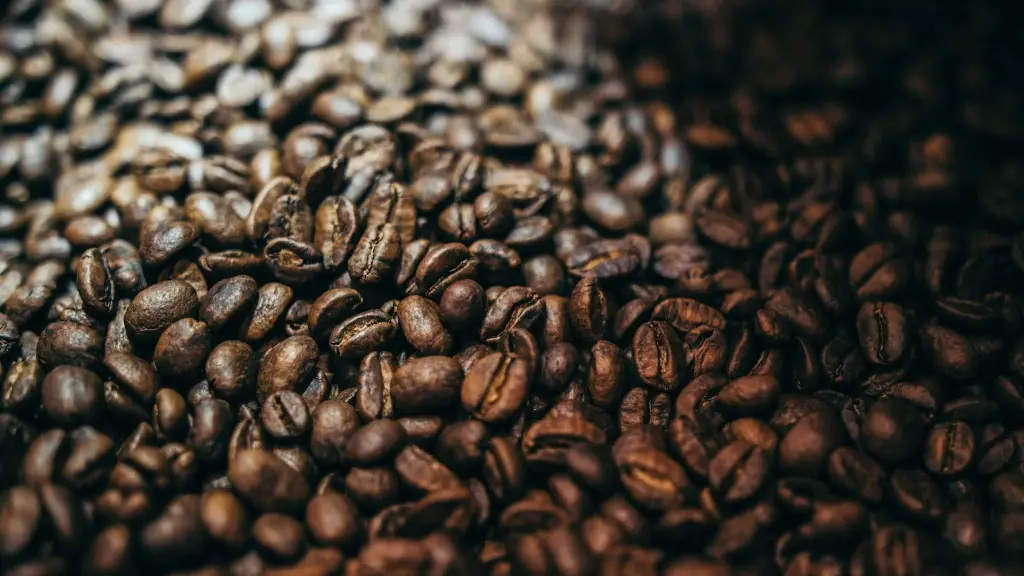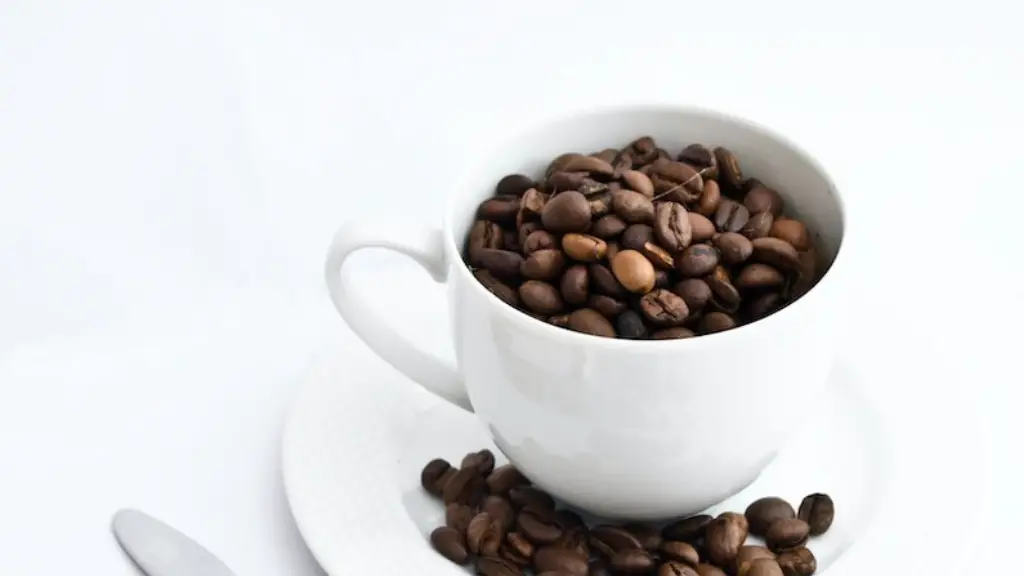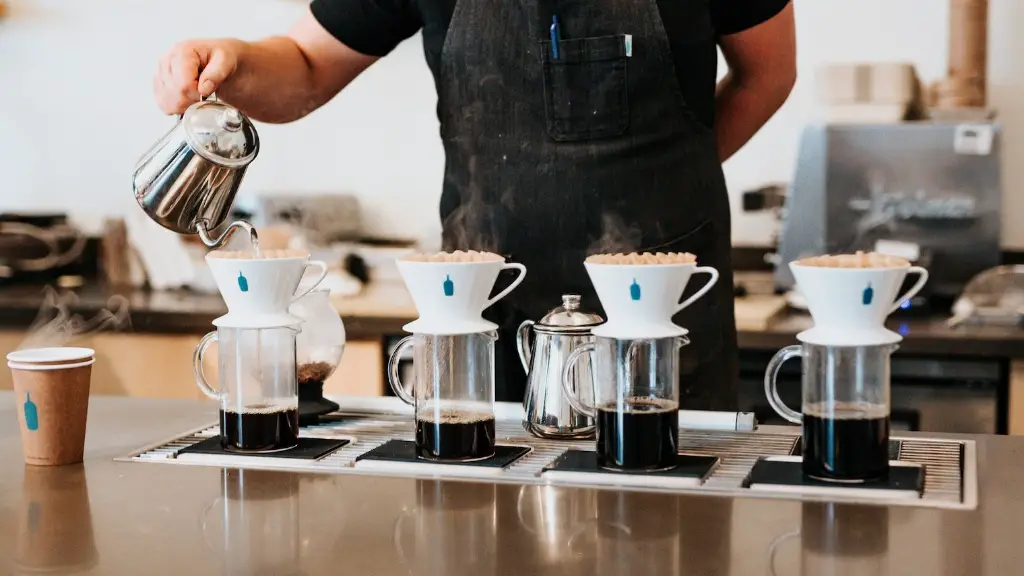Can drinking coffee raise your temperature?
The notion that drinking coffee can raise your body temperature has been circulating for a while, but does it really? It turns out there’s a complex interplay between drinking coffee and your body temperature and it depends on quite a few factors. Many studies have been conducted to uncover the mystery of coffee and its impact on body temperature, and the results reveal coffee may not have the direct effect you’d expect.
It’s easy to assume that a hot drink like coffee will raise your body temperature, as hot water is known to increase your core temperature. Coffee contains a few thermogenic compounds that may also boost your body temperature. These compounds, such as caffeine and chlorogenic acid, boost your metabolism and therefore generate heat in your body. Coffee’s high caffeine content is thought to even increase your body’s metabolic rate, making you sweat slightly more.
Nutrition and sleep specialist Dr. Alex Dimitriu explains that drinking coffee and having an elevated temperature afterward really just boils down to caffeine. “Caffeine is a type of stimulant, and thus when you drink coffee and feel your temperature rise, that is more likely due to the caffeine than because of an actual increase in body temperature,” he says.
The effects of coffee on body temperature can depend on your overall sensitivity to stimulants. When it comes to caffeine, your internal thermostat is key: some people become stimulated faster than others. Consequently, if you’re the type of person who gets easily stimulated by the effects of caffeine, then yes, drinking coffee can raise your temperature. On the other hand, if you happen to be someone who doesn’t get affected much by caffeine, then it’s likely that drinking coffee won’t affect your body temperature much.
Coffee can also cause dilation of your blood vessels, which may cause you to temporarily feel warmer. You also may feel that your temperature has gone up due to the way coffee stimulates your body and mind. In a sense, your body is working harder after drinking coffee, which can make you feel as if you are getting warmer.
Time of day is also a factor when it comes to the effect of coffee on your body temperature. A 2017 study in California found that people exhibited higher body temperatures in the afternoon than in the morning. Researchers attributed this difference to increased caffeine consumption when it’s closer to noon. This suggests that drinking coffee at a certain time of day can play a big role in the temperature readings of your body.
While there doesn’t seem to be an overwhelmingly positive or negative effect of coffee on your body temperature, coffee can have both short-term and long-term effects on the body. In the short term, it can provide an energy boost, but over an extended period of time, drinking too much coffee can potentially lead to weight gain, dehydration, and elevated blood pressure. Therefore, it may be beneficial to keep coffee consumption in moderation to ensure that you don’t experience negative health outcomes.
General Effects of Coffee on the Body
Coffee can have a range of positive and negative effects on the body. It contains a variety of compounds that can affect your mood and energy levels. For instance, many people drink coffee as an energizer to improve alertness and focus. It’s also known to improve physical performance allowing athletes to increase their activity levels. Coffee’s stimulating effects come from caffeine, which acts as a stimulant on the brain. Caffeine can also make you more irritable, so it’s important to pay attention to your caffeine intake and not to overdo it.
Coffee contains antioxidants which can help protect your cells from damage and make them more resilient. However, it’s important to note that the antioxidant content of coffee varies depending on the type and how it’s prepared. Coffee can also help to reduce the risk of some diseases like type 2 diabetes, Alzheimer’s, and Parkinson’s. However, for individuals who are pregnant or breastfeeding, it’s best to avoid drinking coffee due to its caffeine content.
A lot of people turn to coffee as a way to improve their mood and energy. However, it can also have a negative impact. Studies suggest that drinking too much coffee can have an adverse effect on your sleep, as well as your overall health. Drinking too much coffee can also lead to irritability, anxiety, or restlessness, and can interfere with certain medications. Therefore, it’s important to keep your caffeine intake in moderation.
In general, drinking coffee can have positive or negative effects on your body depending on how much and how frequently you consume it. While it can boost alertness, focus, and physical performance, it’s important to note that it can also have detrimental effects such as sleeping problems or increased irritability. Therefore, it’s important to be mindful of your caffeine intake and to manage it properly.
Coffee as an Alternative to Energy Drinks
Coffee is an increasingly popular alternative to energy drinks, as it can provide a more natural and less extreme source of energy. Coffee can help to boost your mood and alertness exactly like energy drinks, but without the potentially harmful ingredients such as taurine and chemicals. Research shows that coffee can also help to improve concentration and alertness, which is why a lot of people rely on it as an alternative to energy drinks.
Coffee also has other health benefits relative to energy drinks. For example, it contains antioxidants, which can help bolster the immune system by fighting free radicals. Additionally, compared to energy drinks, coffee has far fewer calories, sugar, and sodium. This means that coffee can provide the same level of energizing effects as energy drinks but without the potential for unwanted health consequences.
Coffee also has some distinct advantages over energy drinks in terms of convenience. It’s portable and easy to carry with you, and it usually doesn’t require any particular preparation. While energy drinks may be more popular than coffee in terms of taste, people typically consume energy drinks more for their stimulating effects. While coffee can still provide some of the same effects, it doesn’t have the same intense flavor.
In the end, coffee is a more natural and sustainable alternative to energy drinks. Studies have demonstrated that coffee can provide the same energizing benefits as energy drinks without the added chemicals, sugar, and calories. While coffee may not have the same intense flavor as energy drinks, it can still provide the same energizing effects without the potential for side effects or health risks.
Coffee and Dehydration
Most people don’t think twice about drinking coffee, however, it can have an impact on your body’s hydration status. Caffeine is a diuretic, meaning that it can cause your body to excrete more water. Therefore, if you drink a lot of coffee, it can lead to dehydration. This is why it’s important to pay attention to your overall water intake and make sure you’re getting enough fluids when you’re drinking coffee.
It’s also important to note that coffee is often found in beverages, like lattes and cappuccinos, which contain milk and/or cream. These ingredients can contribute significantly to your daily caffeine intake, as well as your total hydration status. If you’re drinking coffee with dairy, remember to factor in the amount of caffeine as well as the amount of water in the beverage.
In general, drinking coffee can cause dehydration, particularly if it’s consumed in large amounts or when it’s mixed with dairy. To protect against dehydration, it’s important to make sure you’re getting enough fluids throughout the day. This can help to prevent dehydration and ensure that you’re receiving all the necessary nutrients from food and beverages.
Coffee and Insomnia
Coffee is a popular pick-me-up for those struggling with energy levels and alertness. However, coffee can have an adverse impact on your sleep if it’s consumed late in the day. Caffeine is a stimulant and can stay in your body for several hours after consumption. Therefore, if you’re drinking coffee late in the day, the caffeine can interfere with your natural sleep cycle and make it harder to fall asleep.
Studies have shown that caffeine can lead to delayed sleep onset and a decrease in overall sleep duration. Moreover, drinking coffee late in the day can lead to difficulty falling asleep or staying asleep. If you’re struggling with staying asleep, it’s important to note that many foods with caffeine — including chocolate, tea, and soft drinks — have similar effects.
In conclusion, it’s important to be mindful of when you’re consuming your coffee. Coffee can help to improve your energy levels and alertness in the day, but if consumed late in the day, it can interfere with your natural sleep cycle. To ensure you’re getting the best sleep possible, try to limit your caffeine intake late in the day and get plenty of rest.
Conclusion of Coffee and its Effects on Body Temperature
In summary, coffee can have a range of effects on the body, including raising your temperature. While it’s easy to assume that a hot drink such as coffee may have a direct impact on body temperature, the reality is more complex. How much coffee affects your temperature depends on your individual sensibility, time of day, and overall caffeine intake. Coffee can also provide you with other benefits, such as boosting your mood and alertness, but it’s important to practice moderation to avoid any potential health drawbacks.





